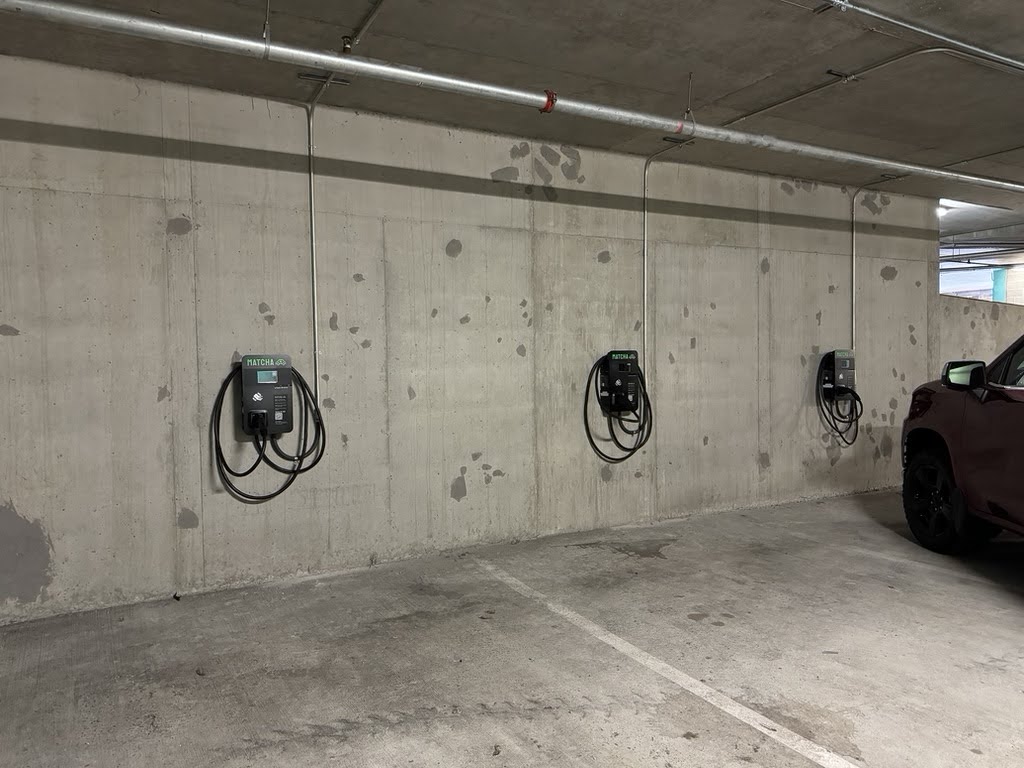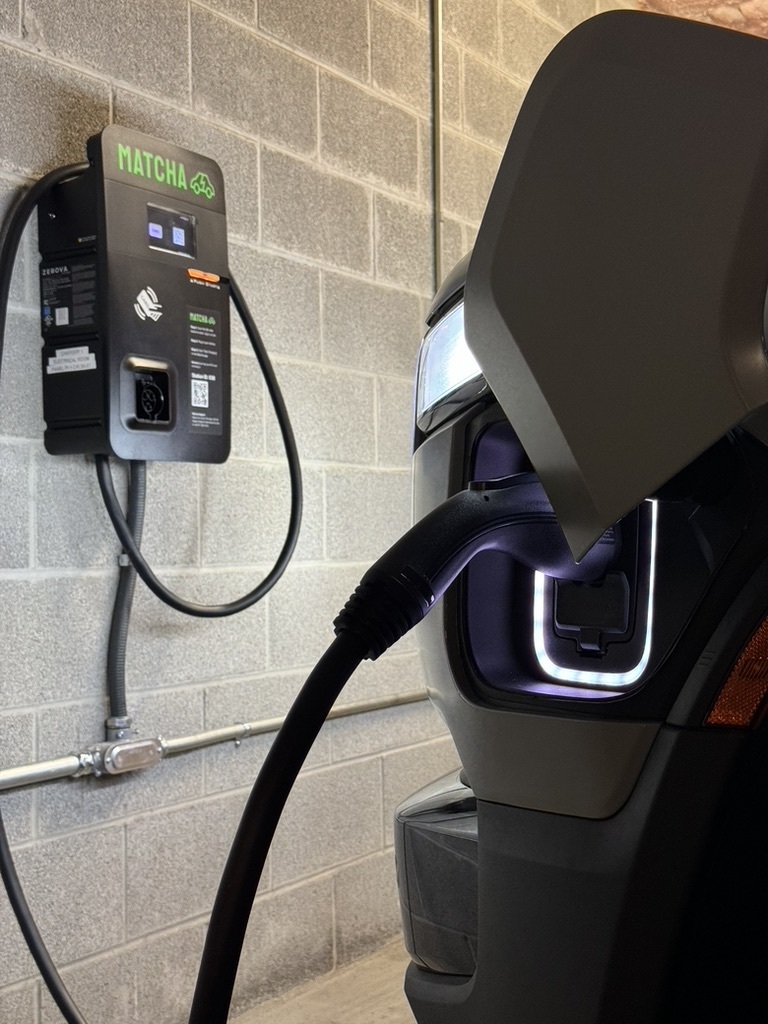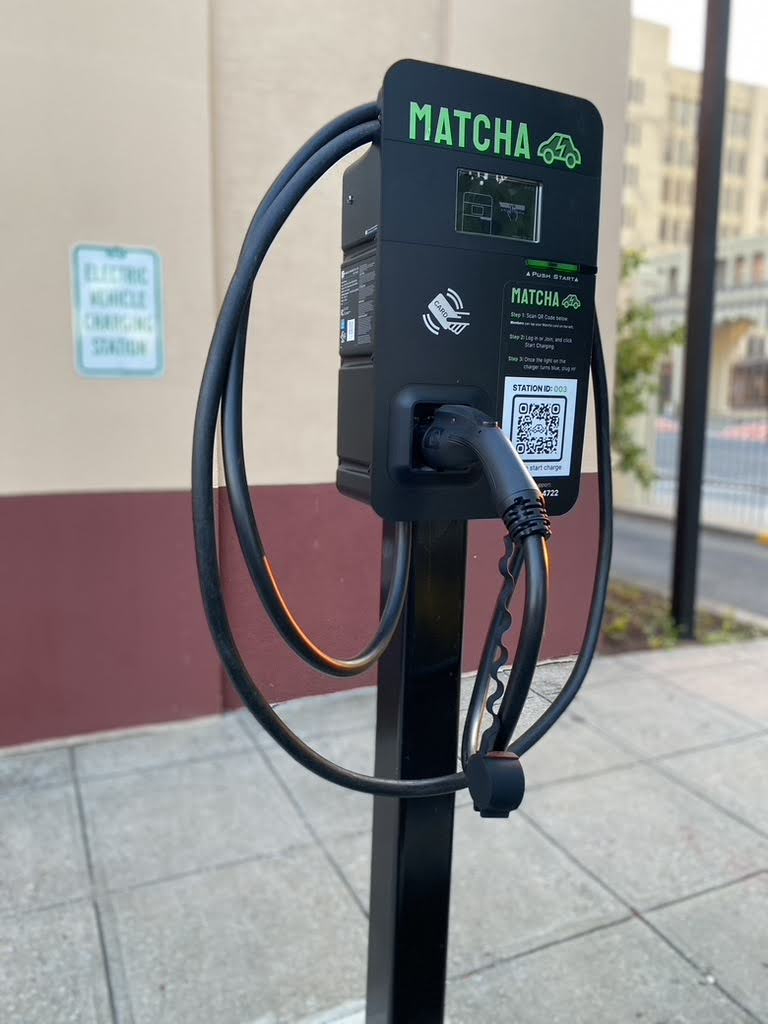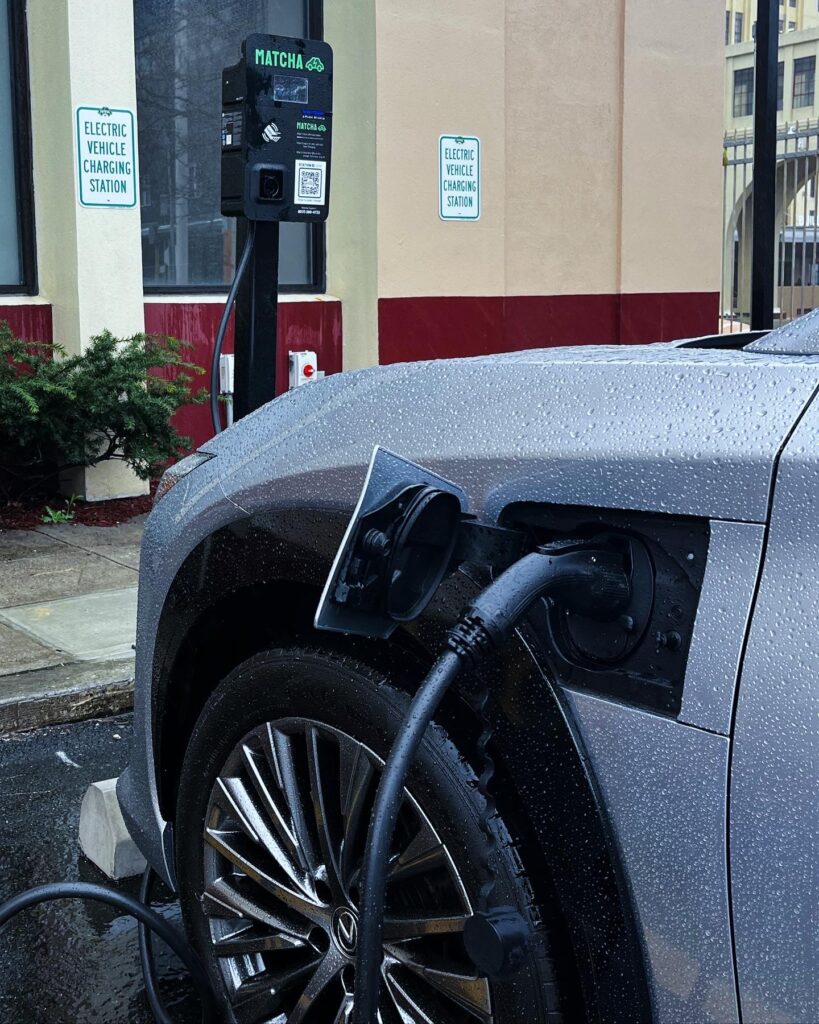In an industry often challenged by fragmented communication and scattered documentation, Digs is bringing innovative solutions to residential construction through its AI-powered platform. Th...
Matcha Electric's Chris Kluesener on Bringing EV Charging to the Multi-Family Market




“It’s actually the golden age of EV charging amenities, especially in multi-family,” says Chris Kluesener, Co-founder and CEO of Matcha Electric.
While headlines about electric vehicles may have turned negative in recent months, the reality on the ground in multi-family properties tells a different story. For the 115 million Americans who rent their homes, EV adoption presents a unique challenge: how do you charge a vehicle when you don’t own the driveway? This disconnect between renter demand and property infrastructure has created an opportunity that Matcha Electric is addressing.
From Consultant to Climate Tech Entrepreneur
Kluesener’s path to founding Matcha wasn’t a straight line. His journey began in environmental sustainability during high school, followed by a career in sales and marketing before pursuing dual MBA and Masters of Information Systems degrees at Boston University.
“I really connected with technology as a skill set and as an area to build skills,” Kluesener explains. This education connected him with the corporate world and taught him “how technology is disrupting typically analog industries, including in climate tech.”
After graduation, Kluesener followed a traditional MBA path, joining Deloitte’s innovation group within their strategy and consulting function. There, he focused on innovation pilots for traditional companies like oil and gas firms exploring how technology might change their business – his first exposure to the electrification movement.
After four and a half years at Deloitte and a stint leading channel partnership sales at a software startup, Kluesener gained exposure to the real estate development industry. During this time, he observed a critical insight: real estate developers were increasingly required to install EV charging stations at new properties across multiple states.
The Light Bulb Moment
The pivotal realization came when Kluesener contrasted these development requirements with his own experience as a renter. “As a renter, you’re unable to adopt an electric vehicle simply because you’re not the owner of the driveway,” he notes. This wasn’t just his problem – it affected 115 million Americans who rent.
“If you don’t own the property, you can’t retrofit anything to the property without explicit permission,” Kluesener explains. “If you’re a renter, you likely don’t drive an EV or a hybrid because there’s nowhere to plug it in, and 80% of charging happens at night.”
This insight, combined with his understanding of real estate developer requirements and the challenges of multi-family residential properties, led Kluesener and his business school roommate to co-found Matcha in 2021. Kluesener quit his software sales leadership role, his partner left PricewaterhouseCoopers consulting, and they entered the market with a new business model.
The Charge Station Operations Model


Matcha Electric isn’t selling hardware or software packages – they’re pioneering what Kluesener calls “charge station operations.” Unlike traditional players like ChargePoint that sell equipment and software with optional maintenance, Matcha provides a fully turnkey solution.
“We provide a fully turnkey solution that includes the financing for the infrastructure as well as a purpose-built technology platform designed for multi-family,” explains Kluesener. The model addresses the fundamental issues that existing solutions are “too expensive and too difficult to self-manage.”
What makes this approach distinctive is that Matcha pays for the installation, provides equipment for free, and delivers a software stack that handles all billing and energy management for charge stations on private properties. It’s a pure vertical solution for multi-family properties, with no capital expenditure required from property owners.
“We’re unique in that we’re vertically integrated,” says Kluesener. “Our company provides the technology stack to operate the stations. We don’t make the stations. We purchase them from the leading manufacturers, and we build the software that runs them, because the hardware is a commodity. The software and how the drivers interact with the system is where the value is created or lost.”
Multi-Family EV Charging: A Different Animal


What makes multi-family charging unique? According to Kluesener, it’s fundamentally different from public charging infrastructure.
“People are charging all night – they live there,” he explains. “These stations are unlike the average of 15% utilization [for public stations]… charging stations in apartments typically see 50% utilization. They’re highly contested and need a greater degree of enforcement, communication between drivers, and coordination.”
Without proper management, this high-demand amenity can become a source of frustration rather than a selling point. “What’s designed to be an amenity ends up being a detractor for a property that does this poorly,” Kluesener notes.
This is why Matcha has built its software stack specifically for multi-family applications, using proven hardware but adding their own technology layer to handle the unique coordination challenges of residential charging.
The Value Proposition for Property Owners


For multi-family properties, the value is clear: attract and retain tenants without capital expenditure or operational headaches.
“Multi-family properties are in the business of renting apartments. They are not in the business of running an alternative fueling infrastructure in their property,” Kluesener emphasizes. He compares it to pool maintenance – properties hire specialized vendors rather than having property managers skim the pool themselves.
The business model aligns incentives perfectly. Matcha covers all installation and equipment costs, provides software at no cost to the landlord, and charges a retail price on the electricity. “It’s fundamentally a skin in the game business model where we don’t make money if the chargers break,” explains Kluesener. This addresses a global problem of charger reliability, as they’re “notorious for being broken and staying broken for months or years.”
Market Penetration and Expansion
Despite recent political shifts affecting federal funding for public charging infrastructure, Matcha is expanding rapidly. The company currently operates in seven states across 15 utility territories, with clients including Cushman Wakefield, Choose Boston, Northside Development, and the New York City Economic Development Corporation
They’ve secured non-dilutive grant funding from Massachusetts and awards from NYSERDA in New York. And counterintuitively, the reduction in public charging subsidies has actually accelerated demand for private charging amenities like those Matcha provides.
“It’s sped up even since the federal election, because with the reduction in public access charging subsidies and incentives, there’s an increased emphasis on private access charging amenities,” Kluesener notes.
Looking Forward


Matcha is actively expanding South and westward, with launches planned in California and Arizona later this year, along with moves into New York, New Jersey, Pennsylvania, Maryland, Washington D.C., and Virginia. From a product perspective, they’re developing energy management features for demand response, curtailment, time-of-use pricing, and other mechanisms to provide charging amenities without straining the electrical grid.
They’re also launching a reservations feature that Kluesener believes “will significantly improve the experience for highly utilized charging stations, allowing apartment residents to share stations effectively.”
As Kluesener quips, Matcha’s essence is wrapped up in the company’s namesake. “We’re providing all-day energy, just like the green tea you drink.”
Similar Articles
Explore similar articles from Our Team of Experts.


“When the blood is in the street, that’s the time to buy,” recalls Yuval Shram, Founder and CEO of Tay Investments, describing his entry into real estate during the 2008 fi...


From his days as a software engineer at Microsoft to becoming a real estate tech entrepreneur, Daniel Tsikata’s journey reflects a common startup origin story: he encountered a problem...


Ray Kaderli stands at the forefront of America’s hemp construction movement. As president of the US Hemp Building Association and a recognized industry leader, he’s helping trans...


In a home improvement industry dominated by aggressive lead generation and unclear pricing models, BidList has developed a platform that brings clarity and efficiency to roofing and solar in...




